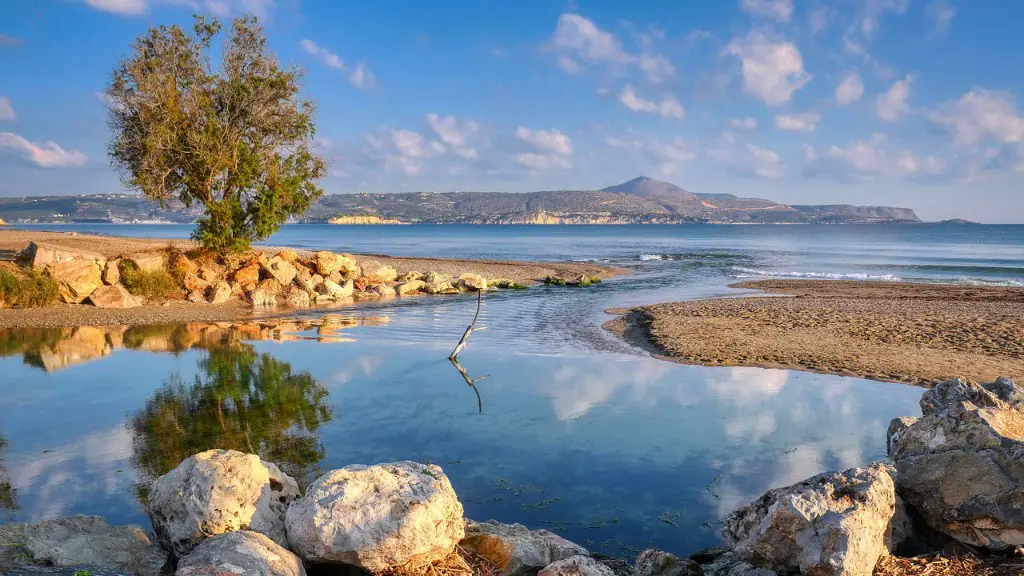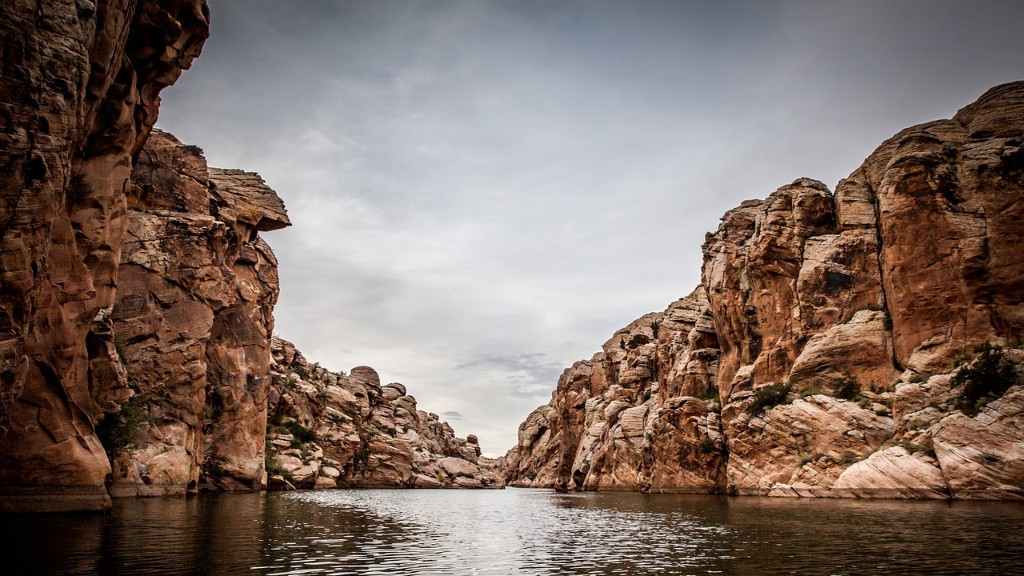Mississippi River Impact on Commerce
As one of the world’s most important rivers, the Mississippi River has a big influence on commerce. The powerful force of the river has enabled transportation of goods across states, connecting traders and creating commerce networks that are relied on to this day. There are plenty of cultural, commercial and industrial activities along many of the Mississippi’s stops, with thriving cities such as New Orleans, St. Louis, and Memphis.
The Mississippi River’s strong flow and breadth has improved navigation and transportation since its discovery by the dauntless explorers of Hernando de Soto and Jacques Marquette. The river, which stretches from its source in Lake Itasca, Minnesota and terminates at the Gulf of Mexico, is the fourth-longest river in the world, with 2,340 miles at full course. This enabled steamships and flatboats to flow through it like never before, bringing wealth and opportunity throughout the region.
The abundant resources of the Mississippi River have long attracted human activity. The river is of immense economic value and produces food for animal and human consumption, as well as providing critical energy for industry in the form of hydropower. The different species of fish present in the river provide a huge variety of diversity; shad, salmon, sturgeon, silver carp and bass are just a few of the species that thrive in the ecosystem.
A wide variety of raw materials like minerals, timber, and cotton were extracted from the area and sent across the country to places like Chicago, London and New Orleans. This rapid increase in commerce gave rise to cities and factories alongside the river, especially in Memphis and St. Louis. It became the busiest shipping artery in the United States. Cotton, a key commodity of the South’s agricultural economy was transported to the North and Europe via the Mississippi River for sale, further contributing to economic stability.
The Mississippi River has also influenced culture. The river has inspired writers, musicians and filmmakers — from Mark Twain’s The Adventures of Huckleberry Finn to the 1957 film Baby Doll. People’s reliance on the river and its activities encouraged the production of art and literature that has been celebrated and remembered for centuries. Its beauty and its significance in society continue to be discussed and enjoyed in literature and the arts.
Though the river still has to face issues like pollution, silt deposits and damages to the flooded areas, it still serves as an important economic, cultural, and ecological force. The Mississippi River has absolutely changed the way in which commerce is conducted in the United States. Without it, modern America may have never existed.
Flooding and its Impact
The Mississippi River has had a great impact on flooding. Those living along the river have long dealt with the threat of natural disasters, as the river has flooded many times throughout its history. Most recently, there was major flooding in 2019 in which US Army Corps of Engineers had to open a spillway just outside of New Orleans to reduce water flow. The flooding also caused low water depth in the river, resulting in a reduction of shipping. This resulted in an increase in freight prices along the river, as well as an economic impact on businesses that rely on the river.
However, the flooding is more than a disruption in business; it is, increasingly, a danger to people’s lives and homes. The floods have forced thousands to evacuate their homes and businesses, disrupting lives and forcing people to find alternative housing. Many of the communities who suffer the most from flooding are already impoverished, making it incredibly difficult for them to rebuild after the impacts of the floods.
In order to reduce the risks posed by floods, there are a number of initiatives that are currently being implemented. These include raising levees and dams, creating better levee designs, and installing new technologies such as floodwalls and floodgates. These are important steps in reducing the risks posed by drowning, and in the long view, reducing flooding in areas adjacent to the Mississippi River.
Floodplains have long been viewed as wetlands, rather than a flood risk. This has changed in recent years as the potential for widespread flooding has become more and more apparent. Many EPA-backed initiatives are now focused on restoring and preserving floodplain areas in order to protect them from floods and erosion. This will improve the safety of those living in flood-prone areas, and also prevent water damage to homes, businesses and infrastructure.
The flooding of the Mississippi River has been an issue for centuries, but with new technologies, policies, and initiatives, it is becoming easier and easier to protect those who live and work in the riverside area. By investing in flood prevention, the need for costly and hazardous evacuations can be reduced, preserving communities and businesses.
Economic Benefits of the Mississippi River
The Mississippi River has long had economic benefits to society, but in recent years those economic benefits have become even more apparent. The river has served as a major transportation route and source of hydropower for the area, transporting goods and providing energy for industry. The river is also a source of natural resources, with timbers, minerals and cotton from the banks being harvested and transported to other parts of the country.
The Mississippi River is one of the chief sources of revenue and tax revenue for several states in America. For example, the Port of New Orleans is the largest port in North America in terms of cargo value, and the river itself is a major contributor to the state’s tourism industry. The river also supports over 500,000 jobs in the adjoining states, and its recreational opportunities are unrivaled.
The Mississippi River also has an amazing impact on the environment in the US. Its water flows into the Gulf of Mexico and supports many forms of aquatic life — including several endangered species — and also helps to prevent erosion in the region. The recreation opportunities provided by the river, such as fishing and boating, support economic activities for business owners, fishermen and hunters alike.
So, when considering the incredible economic, environmental and recreational benefits that the Mississippi River provides, it is easy to understand why the river is so important and influential in the region. Through its various influencing avenues, the river has made a positive impact on livelihoods, businesses and the natural environment of the United States.
Environmental Impact on the Mississippi
Unfortunately, the Mississippi River has also seen a lot of damage over the years. While the river provides a variety of services and its use has been important to the economy, overuse combined with agricultural runoff and urban sewage has resulted in a rapid deterioration of the river’s health.
The chemical poisons that are released into the Mississippi River have become one of the primary issues. In fact, the river is one of the most polluted waterways in the world, with chemical runoff from farming causing an increase in algae and nitrogen levels, resulting in oxygen depletion in the water. This creates adverse effects for the aquatic life present in the river, as plants and animals are unable to breathe.
The increase in sediment has also been a major issue – while the sediment is often necessary to keep the river’s depth, too much sediment can be detrimental. High sediment levels not only reduce oxygen in the water, but also increase the risk of flooding due to decreased water flow velocity. This can cause significant damage to people’s homes and businesses.
Because of this increasing pollution, the US Environmental Protection Agency has placed the river under the jurisdiction of the Clean Water Act since 1972. This has been an important way of protecting the river and its surrounding ecosystems, however, the pollution of the Mississippi River is still an on-going issue.
In order to reduce the environmental impacts of the Mississippi River, it is essential to improve water practices in the areas surrounding the river. This means better management of wastewater and sewage, increased use of green technology and conservation practices and more land conservation. This will ensure the river’s continued health for future generations.
Restoring the Mississippi River
There are a few different ways that the ecological health of the Mississippi River can be restored. One of the most important steps is to address the sources of the pollution that are causing so much harm — mainly agricultural runoff and urban sewage. Improved practices should be implemented in order to prevent the pollution of the river, such as increased use of green technology and more conservation efforts.
Another important step is to improve the water flow of the river. This can be done through the use of dams and other water flow control devices to create more efficient water use and prevent erosion. This, combined with better flood control measures and improved levees, will help reduce the risk of flooding, and protect the natural areas that are dependent on the Mississippi River.
The restoration of the Mississippi River is essential for the ongoing health of the river and its ecosystems. Improved practices, better management and increased conservation efforts will help to ensure the health and longevity of the Mississippi River for many years to come.
Conclusion
The Mississippi River has had an incredibly significant impact on commerce, culture and the environment for centuries. It is one of America’s most important waterways, providing resources, transportation and recreation for the region. However, due to overuse and pollution, the river’s health has suffered drastically in recent years, leading to flooding and a decrease in water quality.
In order to restore the health of the Mississippi River and its surrounding ecosystems, it is essential to address the sources of pollution and improve the water flow of the river. Improved policies and practices can help protect the river and its inhabitants, as well as preserve the natural areas that are dependent on its services. The Mississippi River has been a major force of commerce, culture and the environment since its discovery, and it is imperative that this important river be protected and restored for many years to come.





